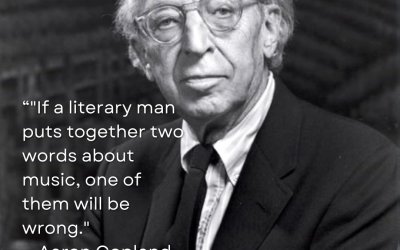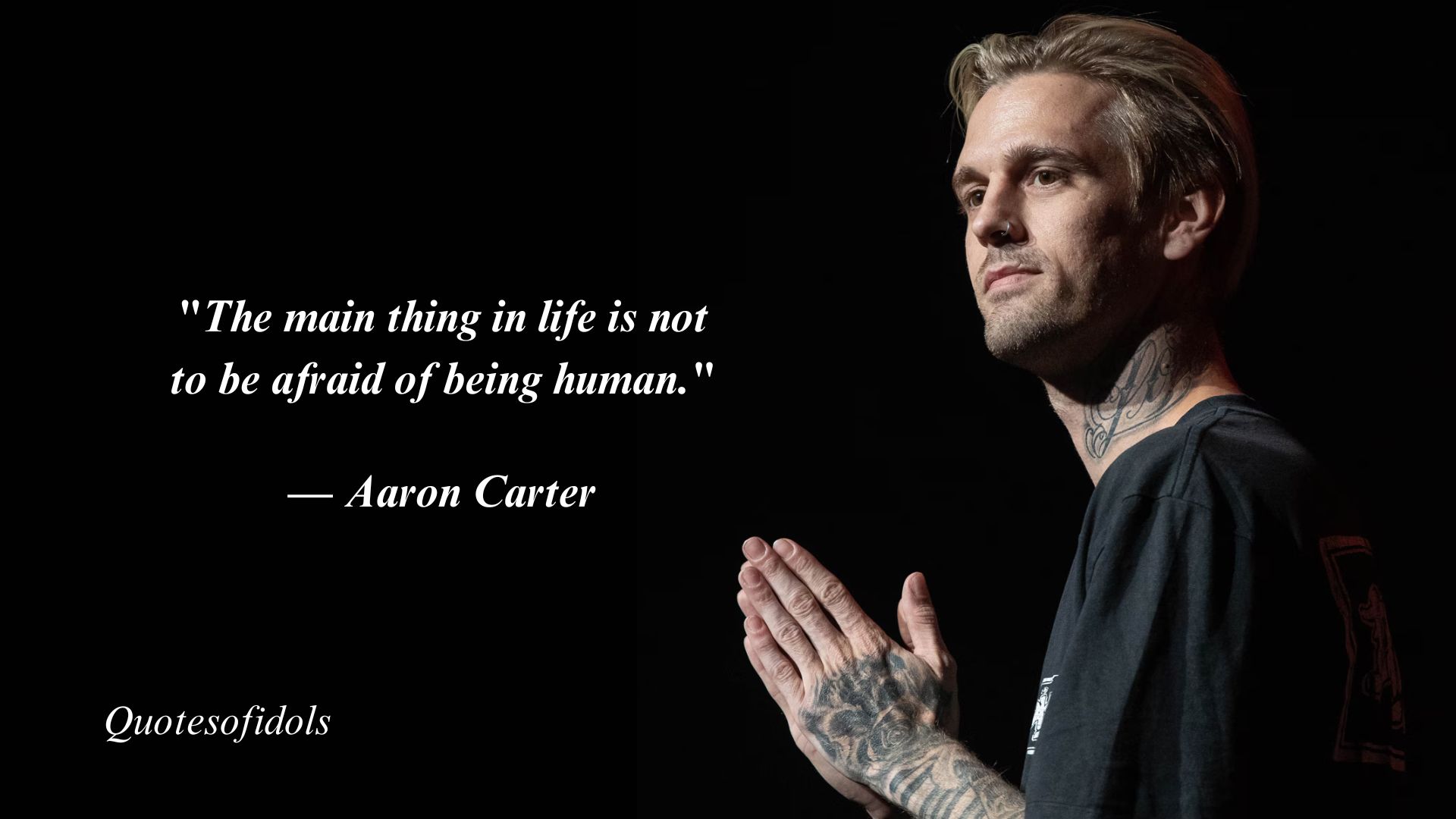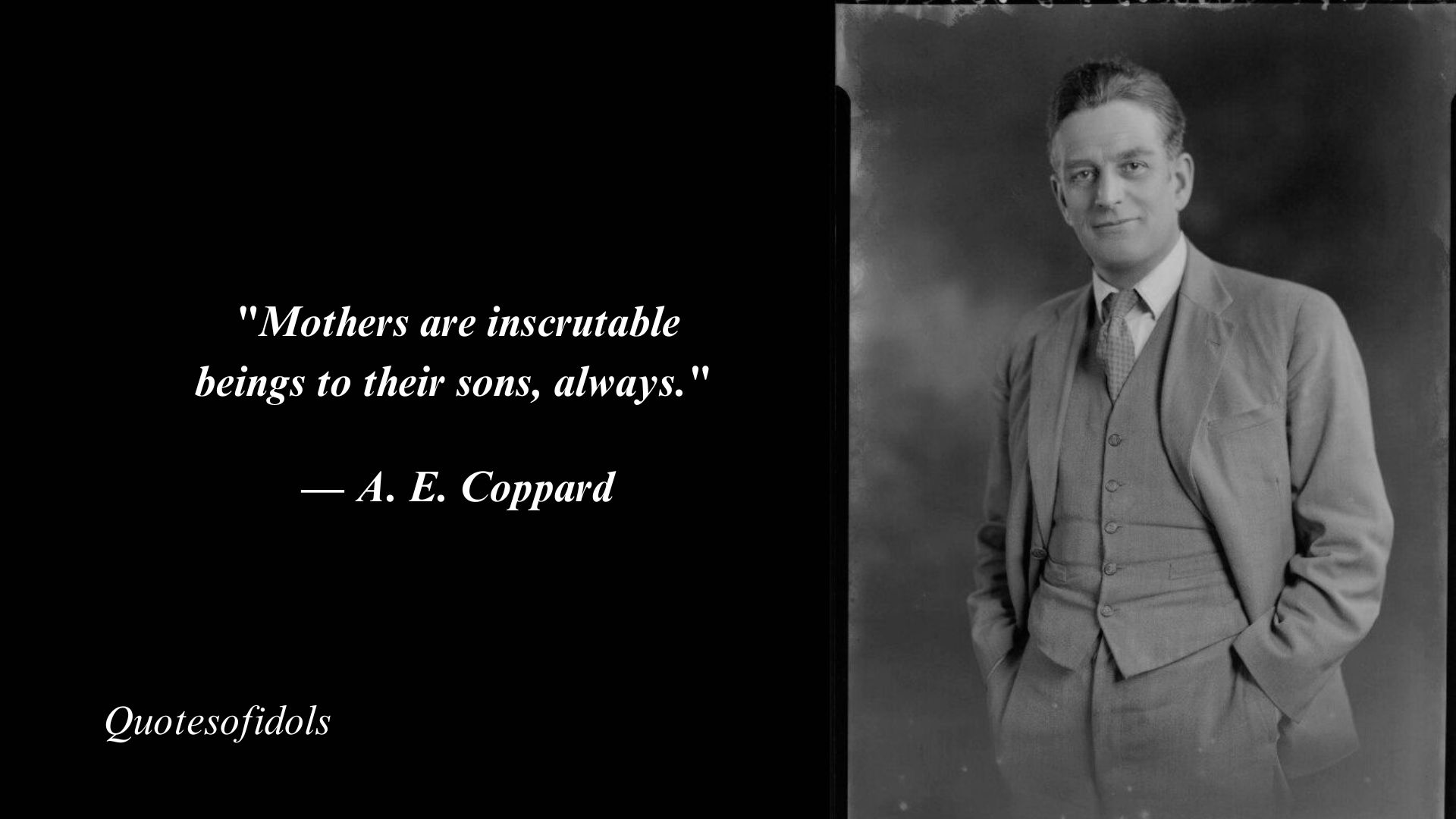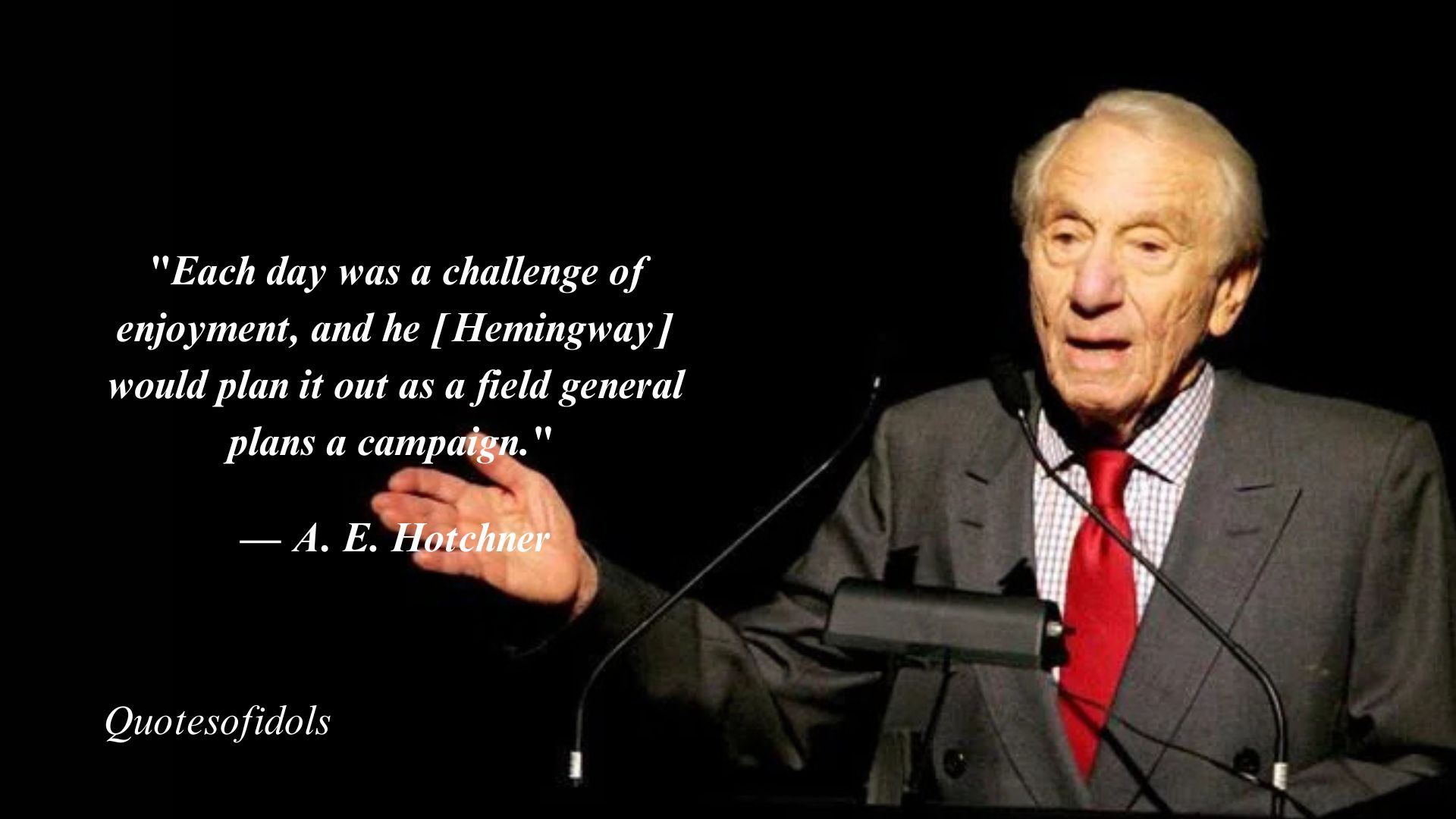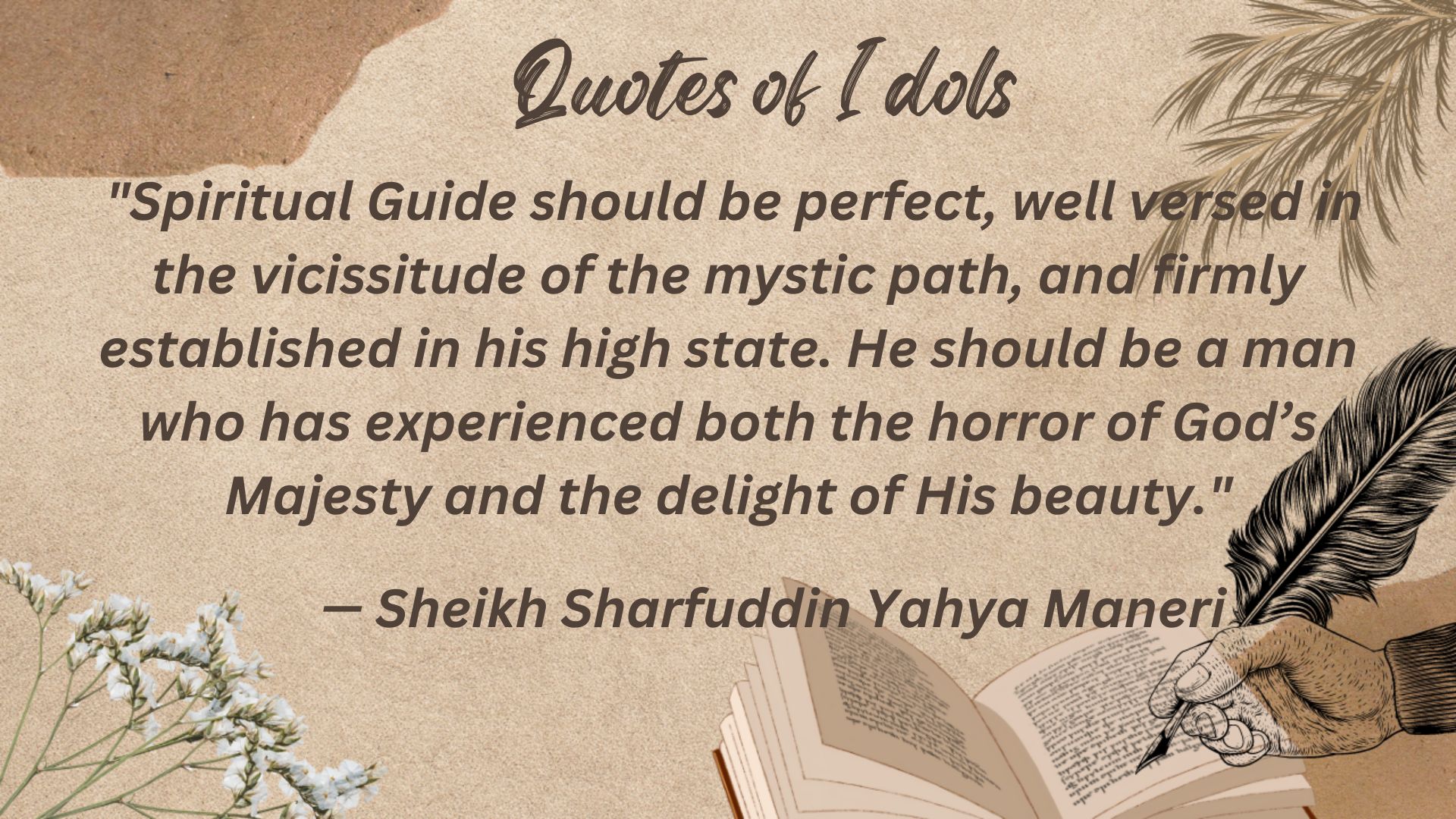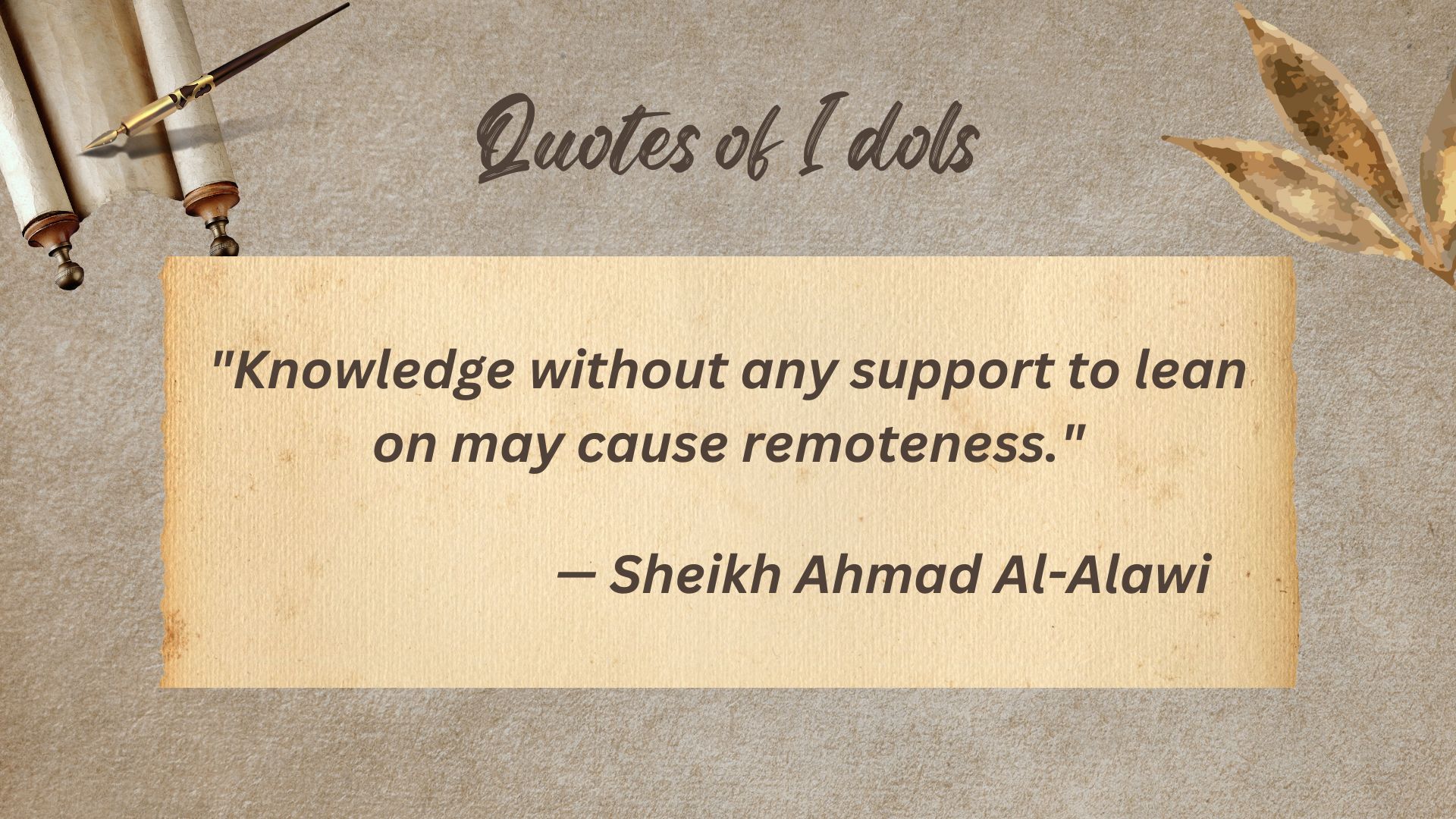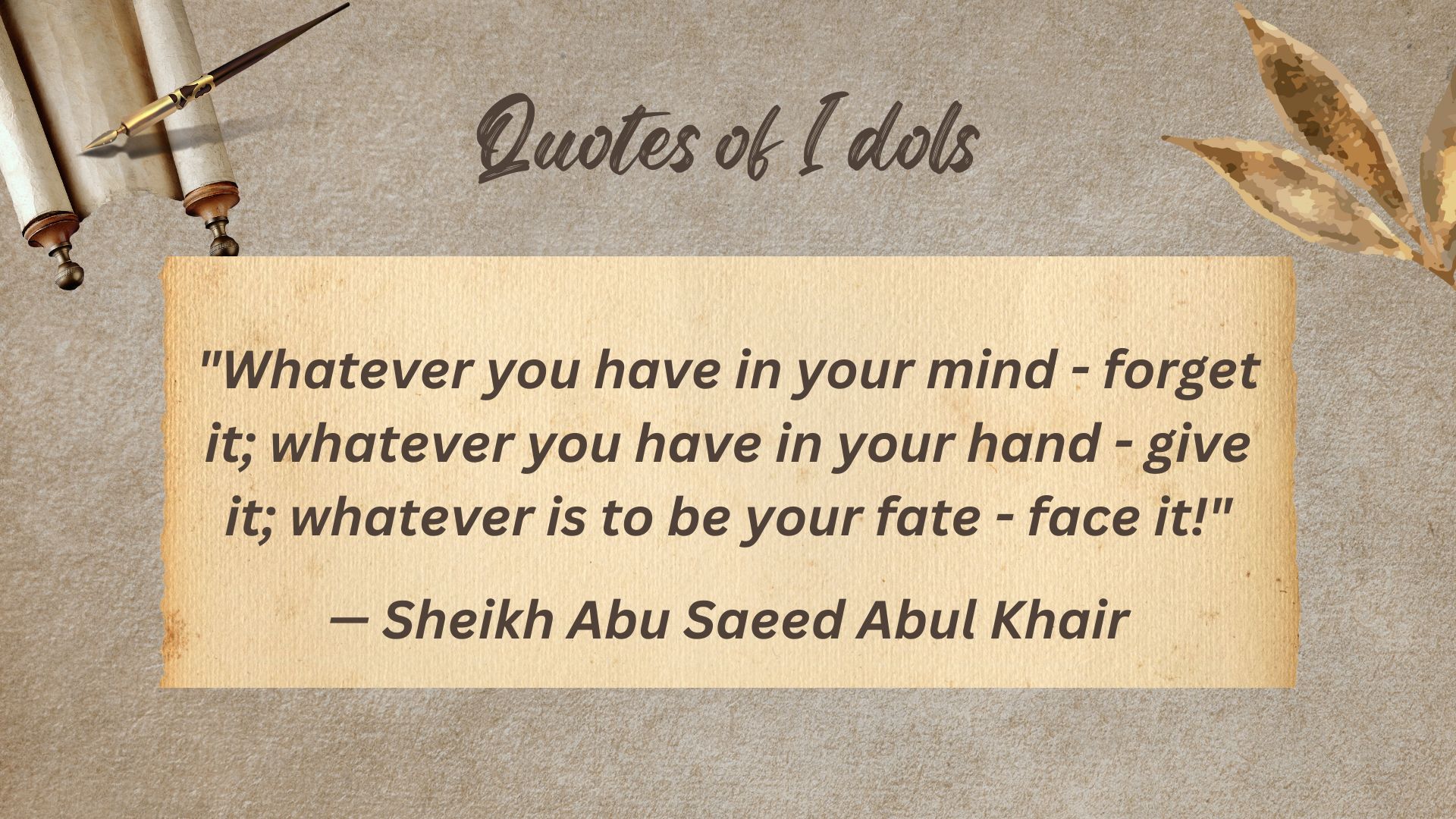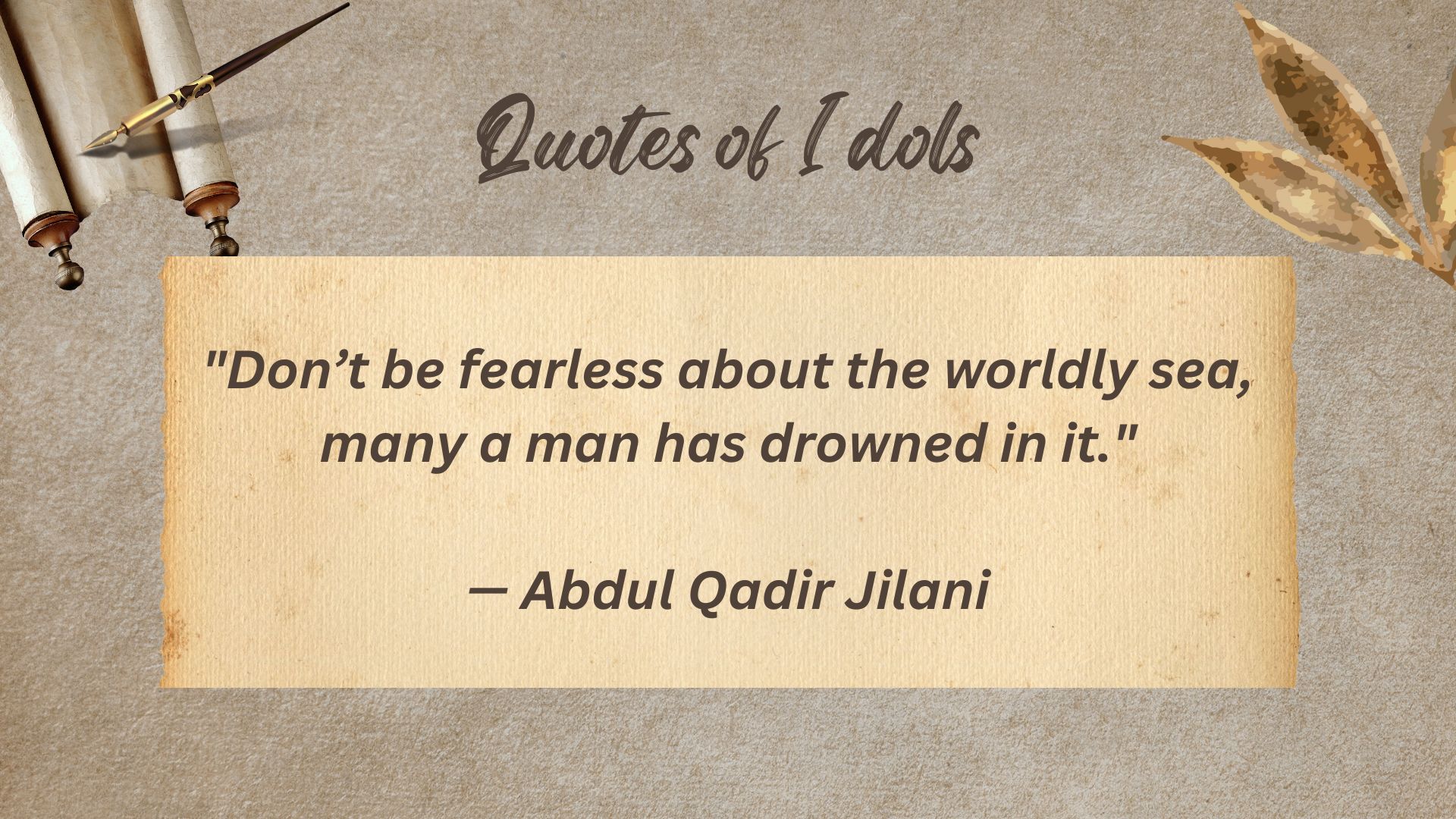All Time Famous Quotes of Haji Muhammad Qadri
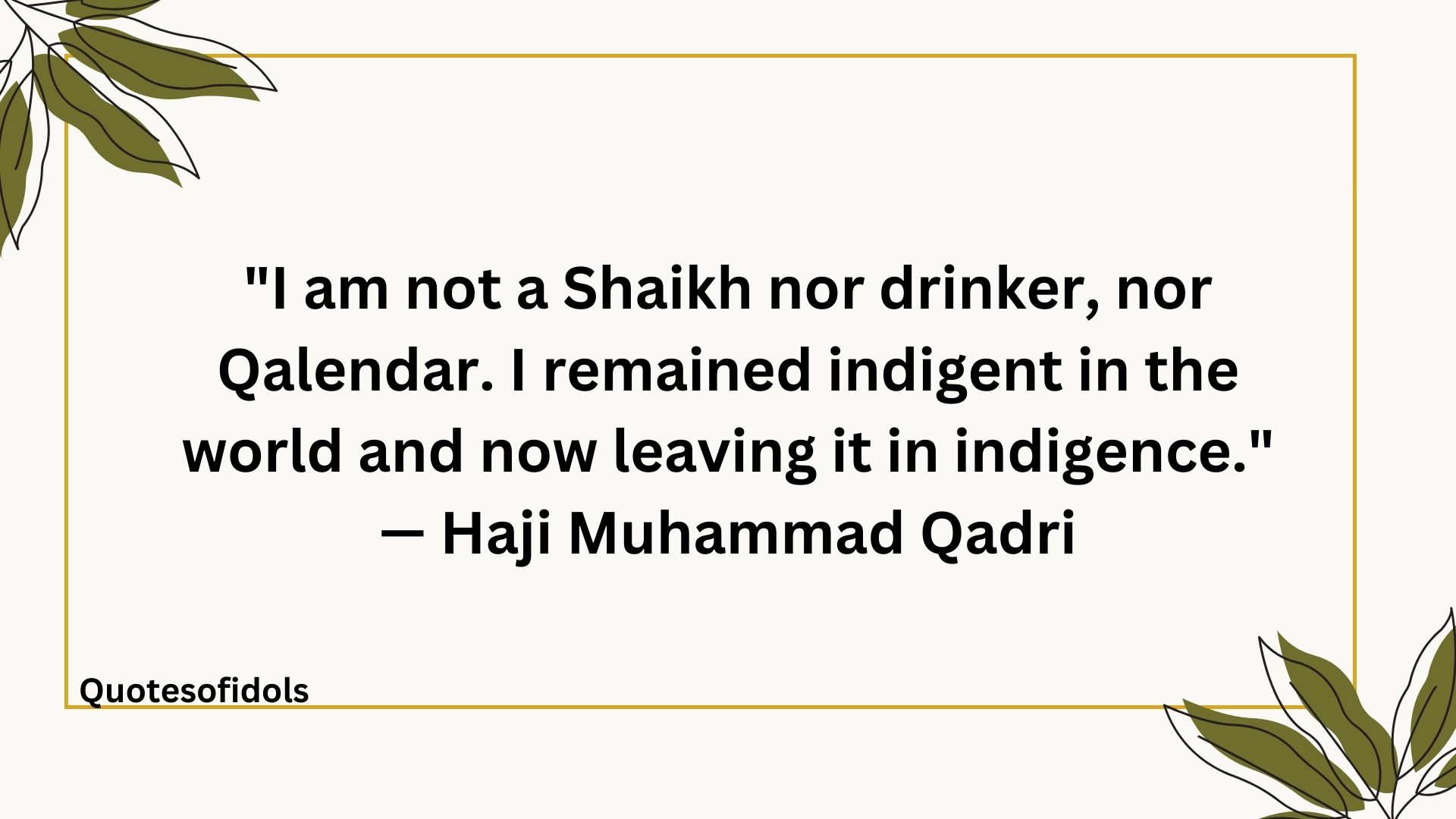
Syed Haji Muhammad Naushah (نوشہ) Ganj Bakhsh Qadiri (also spelled Qadri, 21 August 1552 – 18 May 1654), a scholar, saint and preacher of Islam in South Asia (today’s Mandi Bahauddin District, Pakistan), was the founder of the Naushahia branch of the Qadiriyya Sufi order. He preached in the tenth and eleventh centuries AH (sixteenth and early seventeenth centuries AD). His adherents call themselves Qadri Naushahi, Naushahi or just Qadri (Qadiri).
Haji Muhammad Qadri Quotes
01. “Dervish who goes beyond the exterior phenomenon, get at hidden meanings; he does not see anything except His Essence beneath everything. He sees Him everywhere. The creations become extinct in his eyes. Nothing exists in the universe except the Creator in his eyes.”
— Haji Muhammad Qadri
02. “O Dervish! Religion of Faqr is that you have no concern with anyone. All is from Him. Unless the faith of dervish in hama oost (All is He) is not firmly established, he must not count himself in the category of dervish. And whatever the foremost ee Allah have written in books, you keep in touch with them.”
— Haji Muhammad Qadri
03. “O Dervish! Try to shun the delusion of Iblis. Expel greed of this hateful world from the heart and fill it with the love of God which is the most valuable thing for mankind.”
— Haji Muhammad Qadri
04. “God has endowed mankind with many qualities and countless jewels. No other creatures have so much Divine knowledge, as human possesses. Thus mankind enjoys highest elevated spiritual rank not given to any other.”
— Haji Muhammad Qadri
05. “O Friend! I don’t see anything in the phenomenal world except Absolute Being. Nothing is visible except God. This station is called subsistence into subsistence.”
— Haji Muhammad Qadri
06. “The temporal world is so much poisonous that its venom is more dangerous than any other poison and its outer form is different from all the poisonous snakes. Its lover is pleased only after he has got it and its afflicted too searches cure in its attainment.”
— Haji Muhammad Qadri
07. “If you have inclination to achieve object in life, then get rid of worldly entanglement, and remove the veil of heedlessness, and you will then find the right path instantly and arrive at your real destination.”
— Haji Muhammad Qadri
08. “Remember, Divine Union is not possible to attain without the purification of the inmost being. Laila had her vein opened, Majnun, bled. What kind of Zikr he was engrossed in? Human mind is contaminated by evil thinking. Auliya Allah have prescribed remembrance just to help disciples concentrate on Him and become steadfast.”
— Haji Muhammad Qadri
09. “I am not a Shaikh nor drinker, nor Qalendar. I remained indigent in the world and now leaving it in indigence.”
— Haji Muhammad Qadri

